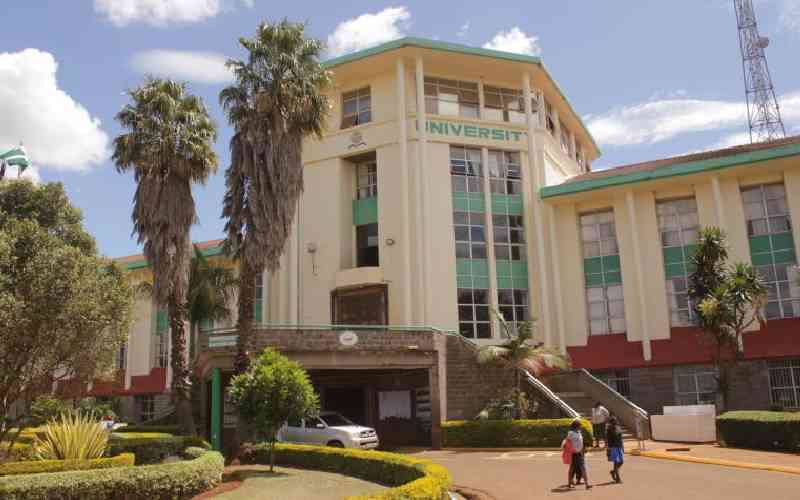NAIROBI: A few weeks ago, I needed to travel to a location where a visa was required. As has become customary, the visa handling office was an agency. It also felt strongly like a torture chamber.
The receiving staff could neither confirm nor deny issuance of the visa, their role stopped at accepting and dispatching the documents to the relevant embassy, which caused a great deal of consternation given that flights and hotel bookings needed to be confirmed before application of the visa.
One particularly unpleasant attendant shouted at an applicant who was on the phone to hang up because, she said, the sign said so.
We looked for the said sign without luck, but even when we challenged her on this, she claimed that the sign was up on the board the last time she checked.
I’m not sure, but somewhere along the line, ‘customer is king’ must have lost relevance in this establishment. Some of these visa application processes elicit the same dreaded feeling as when a law enforcer approaches or stops me in traffic.
I am sure I haven’t done anything wrong, I am certain I have followed all the required procedures and I am sure the car I am driving was legally acquired. But that does not stop me from thinking of a million reasons why I will be found wanting, usually from some obscure law or legal requirement.
So, while we were standing around, fairly disgruntled, waiting for hours on end (we were actually in that office for the same amount of time it would have taken for the flight to depart from JKIA and land at the destination a couple of hours away), we got to commiserate over how ridiculous Intra-Africa travel is.
It makes no sense that it is so difficult for Africans to travel within the African continent, to the exclusion of citizens outside of the continent. And while there are rumours of an African passport, until we see the elimination of intra-continental visas, that is all it will be.
Yes, I agree, there are many more risks involved in modern-day travel than a few decades ago. However, as one astute leader of our more forward-thinking countries always says, security risks, if they want to come into your country, will find a way to do it and not necessarily via the embassy to get visas.
What about the concern that opening up borders will cause non-nationals to take away all the jobs from nationals?
A quick survey done in countries that have implemented open borders shows this has not been the case. In fact, in the face of proper policy setting, it turns out to be more beneficial from a training, up-skilling and knowledge transfer perspective.
The Africa rising narrative has been lauded and denigrated in equal measure. Every time I interact with peers from other parts of the continent, it becomes even more apparent how much we share – the same hopes and frustrations, amidst the yearning for a better future.
Paradoxically, the same things that had set the trajectory for the continent’s renaissance are the same things that came to bite us in the rear.
Oil, copper, gold, diamonds over the past few years or so have almost become a blight on the countries that have been reliant on them for sustenance.
Economists argue that we should put a hold on touting the Africa rising narrative for a short while, while we sort out our fundamental issues. And on many levels this makes sense.
Statistics say that in most African countries, a significant part of the population makes less than two dollars a day. Food security is still elusive as food production per person reduces, along with worsening climate change aided by deforestation and desertification as more and more urbanization takes place to accommodate growing industries.
Stay informed. Subscribe to our newsletter
In all these challenges though, lie opportunities. And one of the most significant ones, in my view, is a growing demographic of better educated, skilled and talented youth that is less willing to accept mediocrity, both in business and political leadership.
Another is the opportunity for trade to oust aid, and for nationalities to become self-sustaining, especially where there are added benefits of creating synergies between each other.
Doesn’t it then, make sense, that creating free movement of labour and goods is more viable than erecting nebulous borders? The amount of time that it takes to go through visa processing for a trip that is just a few hours away, in my view, could better be spent in more productive pursuits.
What would be so detrimental in issuing visas on arrival? There are certain countries like Mauritius that do not even require visas and yet, still continue to draw notable revenues from tourism and business.
As things are going though, the African Union’s agenda for 2063, which includes an integrated continent, politically united, unified, influential global player and partner, based on the ideals of Pan Africanism and vision of Africa’s renaissance seems to be more elusive as we grow farther apart instead of coming together.
 The Standard Group Plc is a
multi-media organization with investments in media platforms spanning newspaper
print operations, television, radio broadcasting, digital and online services. The
Standard Group is recognized as a leading multi-media house in Kenya with a key
influence in matters of national and international interest.
The Standard Group Plc is a
multi-media organization with investments in media platforms spanning newspaper
print operations, television, radio broadcasting, digital and online services. The
Standard Group is recognized as a leading multi-media house in Kenya with a key
influence in matters of national and international interest.
 The Standard Group Plc is a
multi-media organization with investments in media platforms spanning newspaper
print operations, television, radio broadcasting, digital and online services. The
Standard Group is recognized as a leading multi-media house in Kenya with a key
influence in matters of national and international interest.
The Standard Group Plc is a
multi-media organization with investments in media platforms spanning newspaper
print operations, television, radio broadcasting, digital and online services. The
Standard Group is recognized as a leading multi-media house in Kenya with a key
influence in matters of national and international interest.








